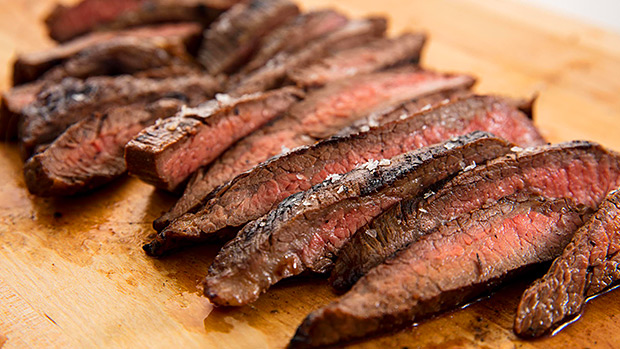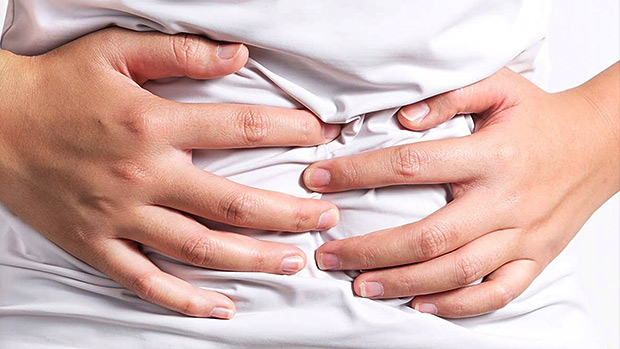Stuffed and Still Looking in the Fridge
Still hungry even after you've crammed yourself full of fibrous vegetables as the diet gurus recommend? Weirdly, it happens.
See, hunger is a complex issue; it's more like algebra than basic addition and subtraction. And there's a lot of chemistry involved too. Eating under your maintenance level of calories – pretty much mandatory for fat loss – will make you somewhat hungry. You're also fighting off psychological habits and triggers as well.
There's just always going to be a certain amount of "suck it up and tough it out" required when dieting. Yes, even when you eat a lot of supposedly filling veggies.
I understand where the experts are coming from with their "gorge on low-calorie vegetables" recommendation. But it doesn't work very well for a lot of people. Why? Because hunger isn't as simple as having a full stomach vs. an empty stomach. Mechanical hunger (having a truly empty stomach) is only part of the puzzle.
While eating a pound of green vegetables – or even two pounds as some recommend – every day will fill your stomach, it may not satisfy your appetite. Why? For one reason, not all veggies send your brain the "I'm full" signal.
Certain brain cells called tanycytes control appetite. These cells detect nutrients and inform your brain about the food you've eaten. And these cells respond to abundant amino acids, not lettuce.
The amino acids arginine and lysine react strongly with tanycytes, which in turn release info to the appetite-controlling portion of your brain in as little as 30 seconds. Foods with high concentrations of arginine and lysine include:
- Sirloin steak
- Chicken
- Lentils
- Almonds
- Mackerel
- Avocados
If you're worried about the calories that come with those foods, try supplementing with arginine and lysine when dieting. And yes, eat your veggies, just in non-stomach-distending amounts.

1. Sleep more.
Insufficient sleep – say 5 hours – causes the average person to consume around 385 more calories the following day (1).
Lack of sleep messes with the reward centers of your brain and disrupts your internal body clock. This affects the regulation of leptin (the satiety hormone) and ghrelin (the hunger hormone). In short, bad sleep gives you cravings, usually for calorically dense foods.
2. Eat more protein.
As T Nation contributor Dr. Jade Teta has noted, "Protein is the king of reducing hunger. If you want to reduce your hunger, then amplify protein intake above all else."
The old rule of eating about a gram of protein per pound of bodyweight works for most moderately chubby people. A little over 1 gram per pound is fine too since it's very difficult for your body to store excess protein compared to carbs and fats.
Protein powders with a good amount of thick micellar casein really stick to your ribs. Metabolic Drive® Protein is a top choice. If you're having a late-night craving, a thick 21-gram protein shake (one scoop of Metabolic Drive) will get you through the craving.
3. Eat the RIGHT kinds of fiber.
This is what the "eat two pounds of veggies" people are trying to accomplish. But soluble, gel-like fibers have the most powerful hunger-suppressing response – and in fact may be the only appetite-killing types of fibers (2).
Dr. Teta notes: "These types of fiber coat the digestive lining, interacting with L and K cells which then signal, through hormones like GLP and GIP, to turn down hunger."
Viscous fibers include:
- B-glucan (oats)
- Psyllium (Metamucil)
- Glucomannan (root of the konjac plant)
- Guar gum (a seed fiber)
- Pectins (like the fiber in apples)
You can find all these in powdered supplement form. Mix a couple of them up with water and consume between meals or 30 minutes before a meal to blunt appetite.
4. Get your micronutrients.
You know how pregnant women get weird cravings? One theory is that they're lacking in a certain vitamin or mineral.
Cravings during your fat-loss diet are somewhat related. Some diets have you really limit food variety, which may lead to a deficiency in certain vitamins or minerals. Your body is "asking" for what it needs, and your taste buds make suggestions... usually bad suggestions because those little bastards are very self-serving and not that smart.
Bill Lagakos, PhD, introduced me to the term, "micronutrient deficiency-induced leptin resistance." That theory could explain why it's so easy for the average North American to overeat – all that processed food is full of calories but lacking in vitamins and minerals, so their bodies keep asking for more food, searching for those missing micros.
A dieter with limited food variety could suffer the same problem. To cover your micronutrient bases, use Biotest® Superfood, a blend of 18 berries, fruits, and vegetables.
- H K Al Khatib, S V Harding, J Darzi, G K Pot. The effects of partial sleep deprivation on energy balance: a systematic review and meta-analysis. European Journal of Clinical Nutrition, 2016
- Clark, Michelle J., and Joanne L. Slavin. "The Effect of Fiber on Satiety and Food Intake: A Systematic Review." Journal of the American College of Nutrition, vol. 32, no. 3, 2013, pp. 200-211., doi:10.1080/07315724.2013.791194.




